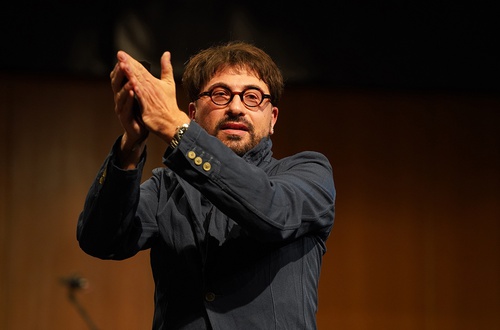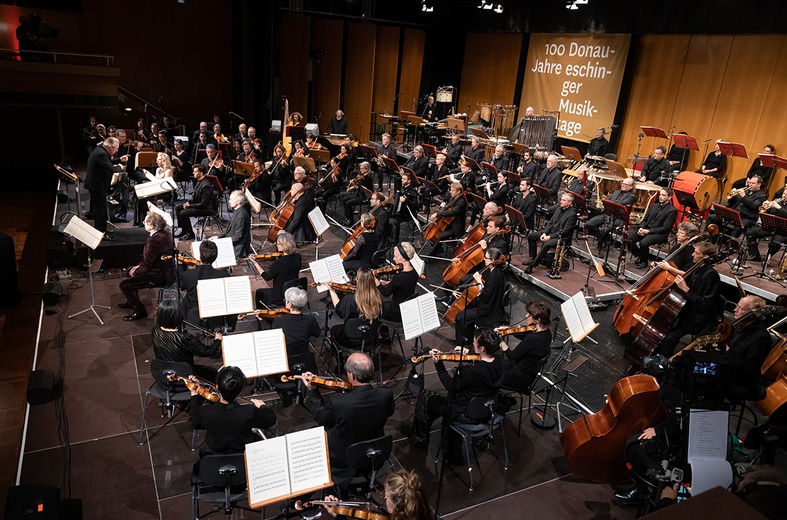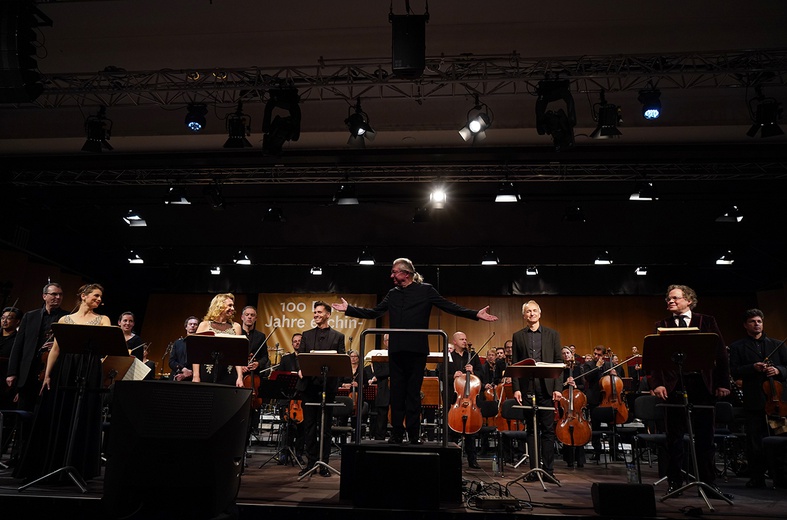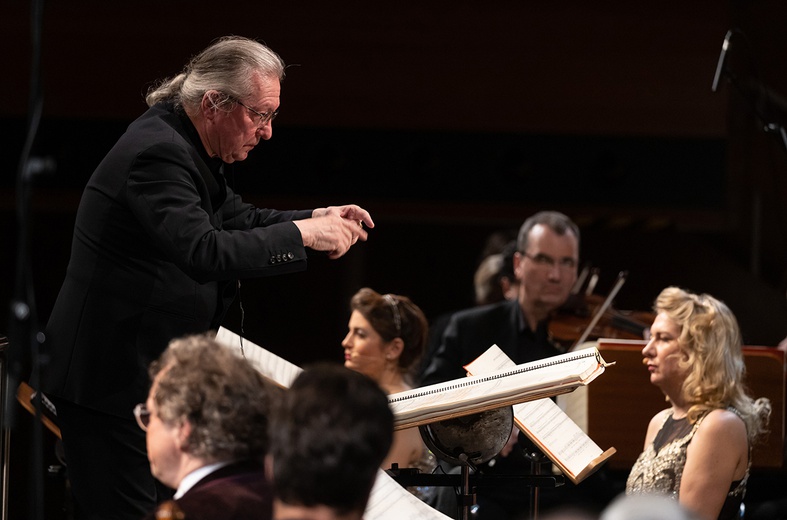Les 100 ans de Donaueschingen 3/3 : « Le Masque de la mort rouge » de Francesco Filidei
Si Alan T. évoque à bien des égards le monde de demain en s’appuyant sur celui d’hier, la pièce-fleuve qui suit, clôturant au passage le festival, convoque hier pour nous parler d’aujourd’hui. Pour leur oratorio The Red Death, Francesco Filidei et sa librettiste Hannah Dübgen s’inspirent du Masque de la mort rouge d’Edgar Allan Poe et de la Divine Comédie de Dante pour aborder un sujet d’une actualité brûlante : une épidémie et un confinement.

Dans la nouvelle de Poe, une terrible épidémie, la « mort rouge », décime le pays. Pour y échapper, l’excentrique prince Prospero se confine avec ses courtisans dans une abbaye fortifiée et y mène une vie de débauche. Sept mois plus tard, l’isolement et la peur nourrissent l’impatience et le ressentiment. Pour calmer ses compagnons d’infortune, Prospero imagine un rituel purificateur : un parcours imaginaire à travers le Purgatoire — tel que décrit par Dante — rappellera à chacun les sept péchés capitaux. Mais rien ne se passe comme prévu — et la soirée se termine sur une sinistre surprise.
Le livret en lui-même, rédigé en anglais avec des passages en latin, dégage une poésie elliptique renforcée par le rythme intrinsèque du verbe versifié — le dernier chœur, tournoyant rondo littéraire, est spécialement réussi, auquel Francesco Filidei réserve un traitement musical qui l’emmène dans un tout autre registre : celui, planant, d’un temps totalement suspendu.
 Choeur de la SWR © SWR/Ralf Brunner
Choeur de la SWR © SWR/Ralf Brunner
Pour sa partition, justement, Francesco Filidei puise avec délices dans cinq siècles de répertoire pour produire un objet néo et néanmoins inclassable, tour à tour néo-classique, néo-médiéval, néo-baroque, néo-impressionnisme, néo-Bernstein, et, surtout, néo-bel canto version vérisme.
Malgré cette apparente hétérogénéité, le résultat est réjouissant, le métier d’orchestrateur de Filidei forçant l’admiration — il convainc d’ailleurs l’Orchestre Symphonique de la SWR qui l’interprète sous la direction de Sylvain Cambreling, au point de lui décerner son Prix coup de cœur du festival.
Les grands tuttis sont exaltants, de même que les divers exercices de style, notamment celui auquel donne lieu le passage sur la Paresse, qui couvre une grande partie de courants musicaux contemporains : postsériel, spectral, bruitisme, néo-classicisme même — comme si Filidei nous offrait là une critique à peine voilée des paresses intellectuelles de son propre milieu… Et l’électronique, réalisée par Carlo Laurenzi n’est pas en reste dans cette charge acide contre les travers humains.
Alan T. et The Red Death apparaissent en tout point dissemblables — et pourtant se rejoignent sur nombreux aspect. Certains sont attendus, à commencer par leurs lucidités tout à la fois sévères et attendries. D’autres moins, comme la référence, dans l’une et l’autre pièce, à Blanche-Neige : conte favori d’Alan Turing (dans lequel certains biographes voient une inspiration pour la manière assez originale dont il a mis fin à ses jours, en mangeant une pomme empoisonnée), c’est aussi le miroir dans lequel se reflète l’Envie de Prospero.
Par Jérémie Szpirglas, octobre 2021
Photo 1 : Francesco Filidei © SWR/Ralf Brunner
 L’Orchestre Symphonique de la SWR © SWR/Ralf Brunner
L’Orchestre Symphonique de la SWR © SWR/Ralf Brunner Sylvain Cambrelling, chef et l'Orchestre Symphonique de la SWR © SWR/Ralf Brunner
Sylvain Cambrelling, chef et l'Orchestre Symphonique de la SWR © SWR/Ralf Brunner Sylvain Cambrelling, chef © SWR/Ralf Brunner
Sylvain Cambrelling, chef © SWR/Ralf Brunner
Le Masque de la mort rouge
de Francesco Filidei (enregistré au Festival de Donaueschingen, 2021)


